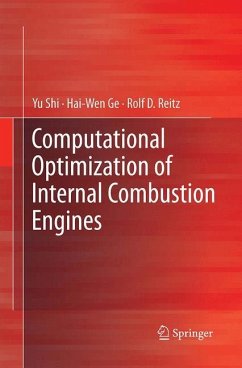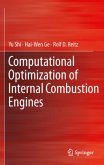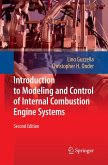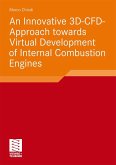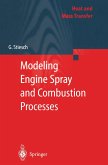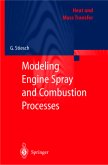Computational Optimization of Internal Combustion Engines presents the state of the art of computational models and optimization methods for internal combustion engine development using multi-dimensional computational fluid dynamics (CFD) tools and genetic algorithms.
Strategies to reduce computational cost and mesh dependency are discussed, as well as regression analysis methods. Several case studies are presented in a section devoted to applications, including assessments of:
spark-ignition engines,dual-fuel engines,heavy duty and light duty diesel engines.
Through regression analysis, optimization results are used to explain complex interactions between engine design parameters, such as nozzle design, injection timing, swirl, exhaust gas recirculation, bore size, and piston bowl shape.
Computational Optimization of Internal Combustion Engines demonstrates that the current multi-dimensional CFD tools are mature enough for practical development of internal combustion engines. It is written for researchers and designers in mechanical engineering and the automotive industry.
Strategies to reduce computational cost and mesh dependency are discussed, as well as regression analysis methods. Several case studies are presented in a section devoted to applications, including assessments of:
spark-ignition engines,dual-fuel engines,heavy duty and light duty diesel engines.
Through regression analysis, optimization results are used to explain complex interactions between engine design parameters, such as nozzle design, injection timing, swirl, exhaust gas recirculation, bore size, and piston bowl shape.
Computational Optimization of Internal Combustion Engines demonstrates that the current multi-dimensional CFD tools are mature enough for practical development of internal combustion engines. It is written for researchers and designers in mechanical engineering and the automotive industry.

